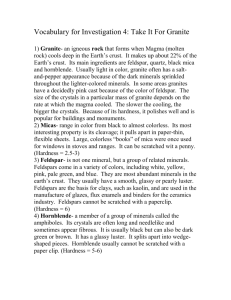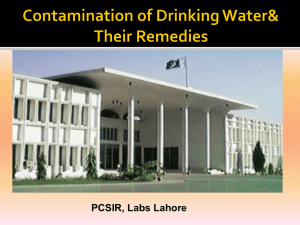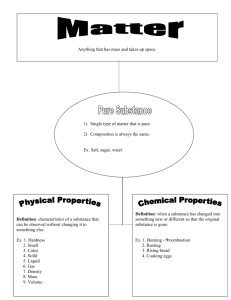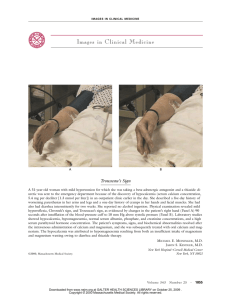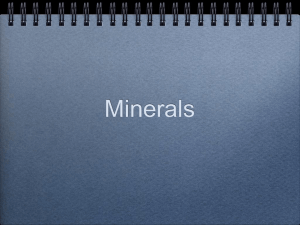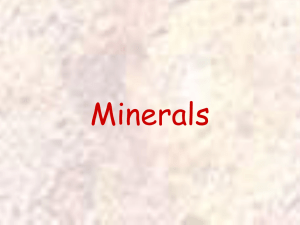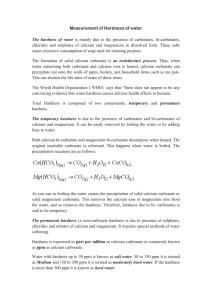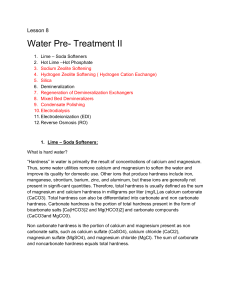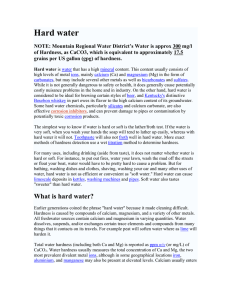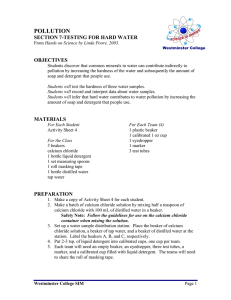What is hard water
advertisement
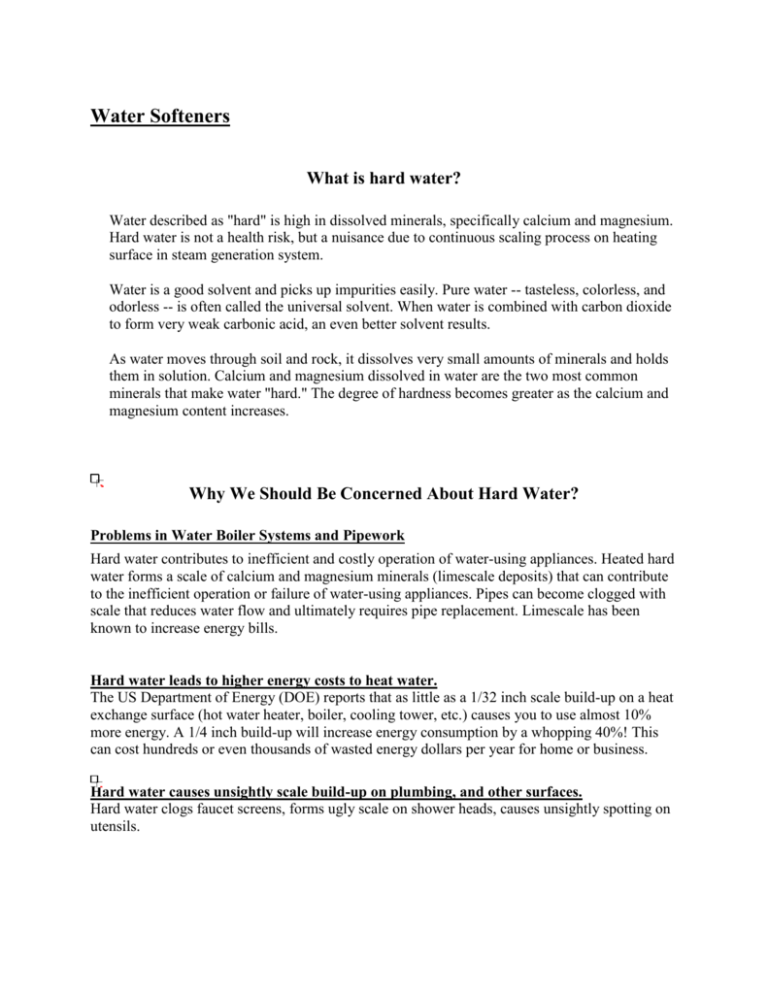
Water Softeners What is hard water? Water described as "hard" is high in dissolved minerals, specifically calcium and magnesium. Hard water is not a health risk, but a nuisance due to continuous scaling process on heating surface in steam generation system. Water is a good solvent and picks up impurities easily. Pure water -- tasteless, colorless, and odorless -- is often called the universal solvent. When water is combined with carbon dioxide to form very weak carbonic acid, an even better solvent results. As water moves through soil and rock, it dissolves very small amounts of minerals and holds them in solution. Calcium and magnesium dissolved in water are the two most common minerals that make water "hard." The degree of hardness becomes greater as the calcium and magnesium content increases. Why We Should Be Concerned About Hard Water? Problems in Water Boiler Systems and Pipework Hard water contributes to inefficient and costly operation of water-using appliances. Heated hard water forms a scale of calcium and magnesium minerals (limescale deposits) that can contribute to the inefficient operation or failure of water-using appliances. Pipes can become clogged with scale that reduces water flow and ultimately requires pipe replacement. Limescale has been known to increase energy bills. Hard water leads to higher energy costs to heat water. The US Department of Energy (DOE) reports that as little as a 1/32 inch scale build-up on a heat exchange surface (hot water heater, boiler, cooling tower, etc.) causes you to use almost 10% more energy. A 1/4 inch build-up will increase energy consumption by a whopping 40%! This can cost hundreds or even thousands of wasted energy dollars per year for home or business. Hard water causes unsightly scale build-up on plumbing, and other surfaces. Hard water clogs faucet screens, forms ugly scale on shower heads, causes unsightly spotting on utensils. Laundering Clothes washed in hard water often look dingy and feel harsh and scratchy. The hardness minerals combine with some soils to form insoluble salts, making them difficult to remove. Soil on clothes can introduce even more hardness minerals into the wash water. Continuous laundering in hard water can damage fibers and shorten the life of clothes by up to 40 percent. Hard Water Testing If you are on a municipal water system, the water supplier can tell you the hardness level of the water they deliver. If you have a private water supply, you can have the water tested for hardness. Most water softener companies will be able to supply you with a water testing kit. Once you've tested your water supply, the hardness of your water will be reported in grains per gallon, milligrams per liter (mg/l) or parts per million (ppm). One grain of hardness equals 17.1 mg/l or ppm of hardness. Water Softening Mechanical water treatment softening units can be permanently installed into the plumbing system to continuously remove calcium and magnesium. Water treatment softeners operate on the ion exchange process. In this process, water passes through a media bed, usually sulfonated polystyrene beads. The beads are supersaturated with sodium. The ion exchange process takes place as hard water passes through the softening material. The hardness minerals attach themselves to the resin beads while sodium on the resin beads is released simultaneously into the water. When the resin becomes saturated with calcium and magnesium, it must be recharged. The recharging is done by passing a salt (brine) solution through the resin. The sodium replaces the calcium and magnesium which are discharged in the waste water.
